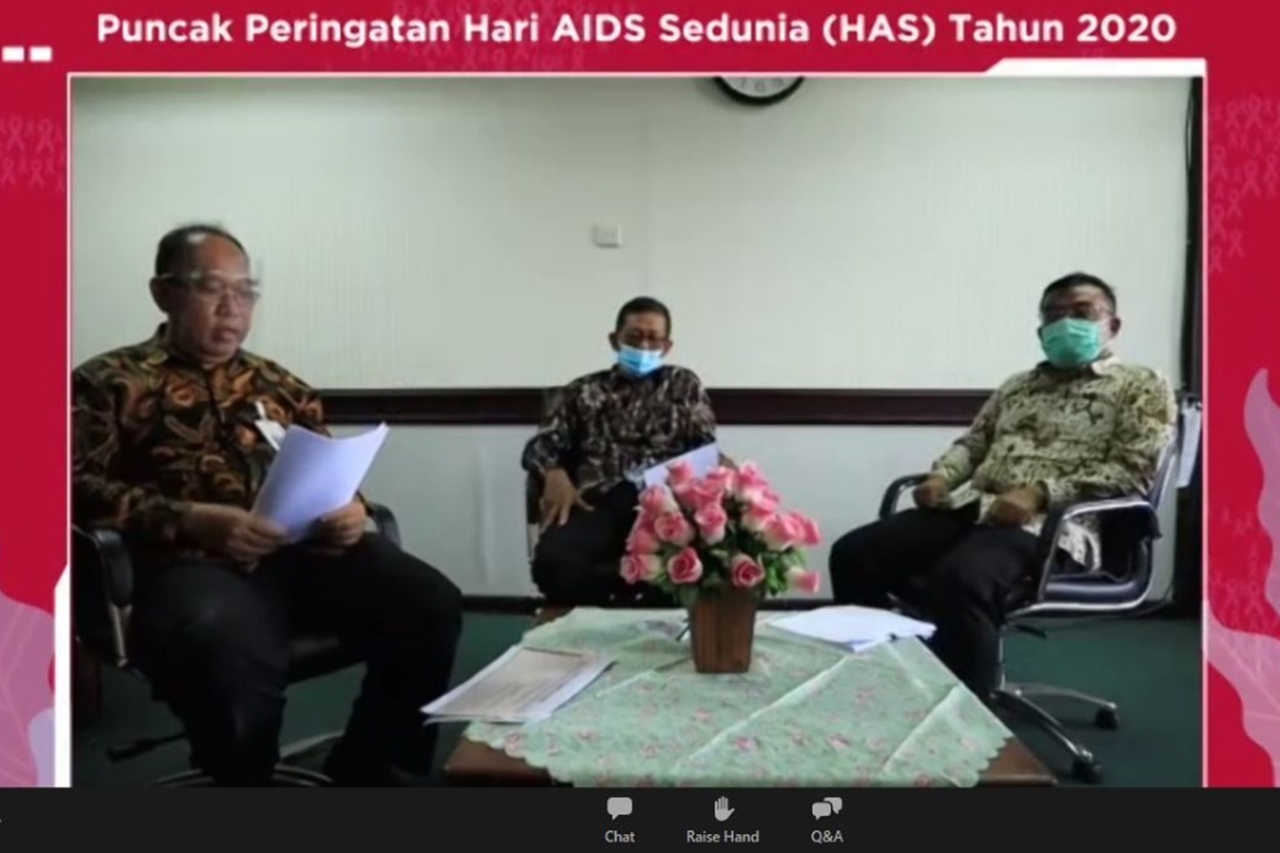HAS 2020, Ministry of Social Affairs: Social Campaign to Remove Stigma and Discrimination of PLWHA

JAKARTA (December 1, 2020) - This year's World AIDS Day (HAS) is different from the previous ones. In an atmosphere of the COVID-19 pandemic, the Indonesian Ministry of Social Affairs collaborated with the Ministry of Health, the Healthy Indonesia Partnership Foundation (YKIS) and the AIDS Healthcare Foundation (AHF) to hold a webinar on Social Rehabilitation of PLWHA: Government and Institutional Direct Policy Strategy to Stop Discrimination on December 1, 2020.
The Director of Social Rehabilitation for Persons with Social Deviances and Victims of Trafficking in Persons (RTS&KPO), Waskito Budi Kusumo, said that the community still cannot let go of people with HIV AIDS (PLWHA) with negative stigma.
"The situation to eliminate stigma requires good steps from the community to decision makers. So there needs to be, firstly, there is a discretionary regulation that friends living with HIV are not embarrassing, but they are sick people who must be served, facilitated and need access. How to access services? buy drugs to maintain their CD4 count. This requires cooperation with Kimia Farma and others so that our brothers and sisters can reach out," Budi said in the webinar.
He added that there was a need for an PLWHA Ambassador as an example to inspire and conduct social campaigns.
"Their social campaigns can be open with PLWHA without fear. Because transmission is only through fluids. This is what people don't need to be afraid of, that's why social campaigns are quite important," he said.
Head of the "Bahagia" Medan Rehabilitation Center, Sumarno Sri Wibowo, explained the role of the Center in carrying out social rehabilitation for PLWHA.
"Regarding our actual role, we are also given a mandate related to Social Rehabilitation Assistance (ATENSI). There we are given the authority to provide social assistance in the form of basic fulfillment of PLWHA," said Sumarno.
Then, continued Sumarno, his party provided social care and advocated to the families of PLWHA that they needed to be embraced.
Sumarno explained that PLWHA were also given various kinds of therapy, such as psychosocial and other therapies.
"The need for entrepreneurship development is also important. How PLWHA plays a role in the economic aspect, then we also provide financial assistance or social assistance in the form of assistance. Then finally, we can explore accessibility support. How can they access health services, work services or if their children can access the world of education," he concluded
 English
English
 Bahasa
Bahasa
